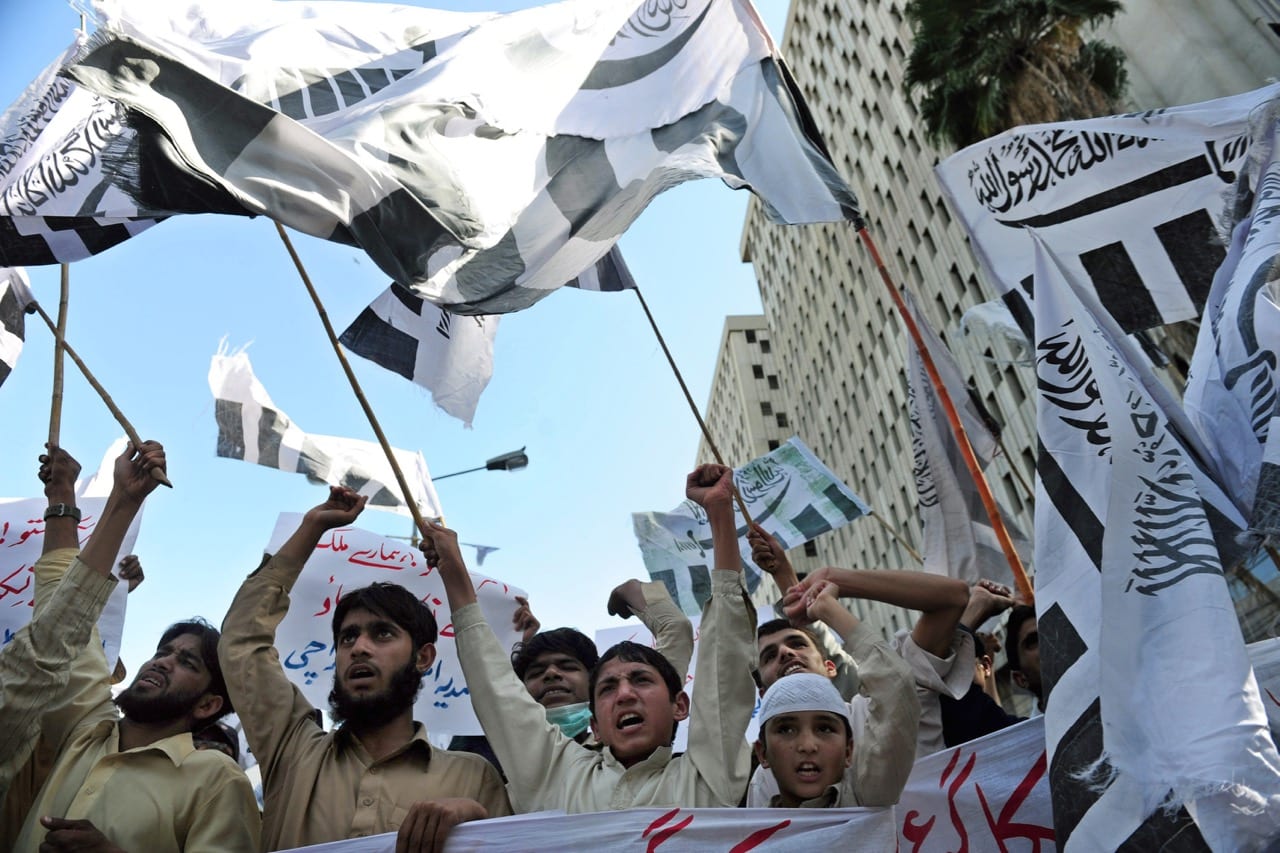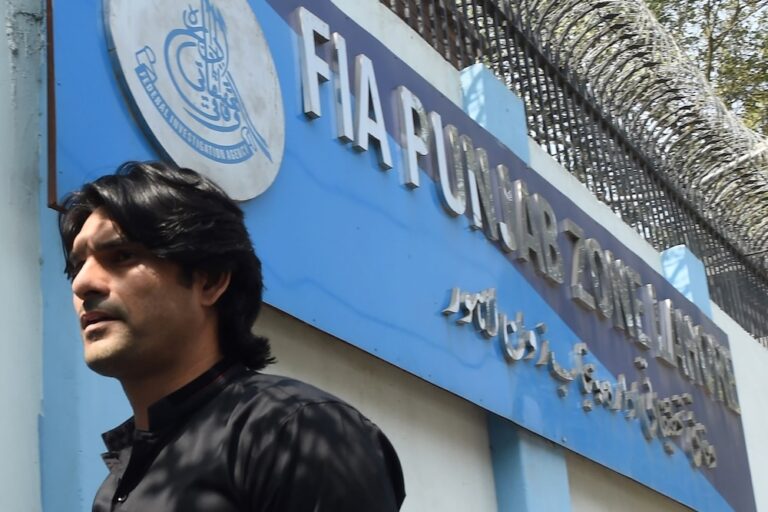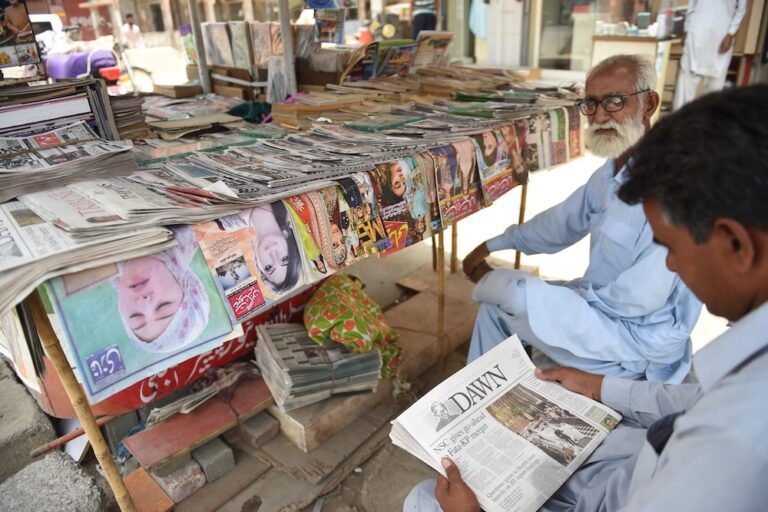So-called "blood money" laws and practices may offer a faster route to a minimum threshold of justice, but legal scholars warn they can also lead to grave abuses while enabling the cycle of killings to continue.
Since 2002, there have been 241 cases of journalists and media workers killed, assaulted, abducted, arrested, or detained across Pakistan. The federal capital Islamabad has been tagged as the most dangerous place for journalists, with 32 cases of attacks in 2018 alone. PPF has found that at least 72 journalists were murdered in direct connection to their work. Only five cases have resulted in a successful conviction, with the vast majority languishing in courts before being closed for non-prosecution. The situation reflects the financial and political power of suspected killers, who are able to evade accountability. This ultimately leads to a failure to provide justice for the murdered journalists.
Naturally, authorities are urged to end impunity by enforcing mechanisms that will deter killings and protect journalists. After all, they have the mandate and resources that can be deployed to pursue those who attack journalists and undermine the free press.
Pakistani journo Shan Dahar was shot 1/1/14 & died unattended in hospital. 2years on no-one has been brought to justice. Why? #noimpunity pic.twitter.com/mPdkpdzL5w
— Globe International (@globeinternat) November 1, 2017
But there is also a worrying trend of media killings that have been settled through the principle of Qisas (equal punishment) and Diyat (compensation).
Misuse of Qisas and Diyat
Qisas and Diyat were introduced in 1990 as local ordinances that became law in 1997. Qisas involves applying the same bodily harm that a suspect did to a victim. Diyat is the offer of compensation or “blood money” to the victim or his/her family.
Diyat was adopted to endorse the Islamic model of justice where reconciliation between the families of the suspect and the victim can be done through compensation. This settlement is expected to end the culture of vendetta by rejecting the retributive model of justice. Also, it offers the suspect the opportunity to atone for his/her sins.
The effect of Diyat is to remove the state from the process of determining the fate of suspects, by allowing individuals to assume the main responsibility in handling a criminal case. It offers a faster route to attain a minimum threshold of justice, but legal scholars have warned that it can also lead to grave abuses with negative societal implications. It essentially ‘privatizes’ a crime, as the state becomes a mere “passive observer as people make independent decisions on whether the killing of citizens should be punished, forgiven or bargained over.”
Some critics have noted that while the philosophical basis of Diyat might be noble, allowing individuals in an inequitable society to act as arbiters of justice, it can cause ‘moral chaos’ and ‘legal malfunctioning’.
Some have cited it as a factor in the rise of killings in Pakistan after its adoption in the country’s legal system. An independent study also showed that the Supreme Court’s conviction rates for murder cases dramatically declined from 79% in 1984 to 35% in 2000. In 2013, Pakistan’s Supreme Court expressed alarm over the rise in number of murder cases where parties chose to ‘compromise’.
Another criticism against Diyat is that it has created a two-tier justice system, where the poor and powerless are subject to the full force of the law, but the rich and influential are allowed to pay for their freedom.
It has also been blamed for the increasing incidences of honor killings that victimize women accused of disrespecting their husbands and families.
How unfortunate that a traditional mechanism that was introduced to end the cycle of violence instead ended up making the lives of the poor, especially women, more vulnerable to attacks and other criminal actions.
Blood money and media killings
Blood money has also made it more difficult to convict suspected killers of journalists. PPF has documented at least four cases where media-related murder cases have been settled after families of victims pardoned the killers in exchange for blood money.
For example, the family of murdered newspaper reporter Sajid Tanoli pardoned the accused killer in 2006 after the latter settled through blood money worth 2.5 million Rupees (US$ 23,800). The accused is a lawyer and a Nazim (mayor), whose alleged illegal liquor business was exposed by Tanoli in 2004.
Another case which was settled through blood money involved newspaper reporter Ameer Bux Brohi, who was killed in 2003 after writing about abuses committed by the police and agents of landowners in the town of Shikarpur in Sindh province. His family pardoned the accused in 2015 by accepting blood money. Brohi’s case was settled through the traditional Jirga system where tribal elders resolve cases like murder.
PPF has emphasized that while the Supreme Court and High Court of Sindh had already declared Jirgas to be illegal, the practice continues to be enforced by tribes across the country.
Today marks the fifteenth death anniversary of journalist Ameer Bux Brohi. Brohi was shot dead on 3rd October 2003 in Shikarpur, Sindh. Impunity prevails in his murder as so many others #EndImpunity #JournoSafe #FallenHeroes pic.twitter.com/9cQKGGADYR
— MediaForDemocracy (@mmfd_Pak) October 3, 2018
The family of murdered reporter Shahid Soomro also settled with the accused killer, who paid 1.6 million Rupees (US$ 15,240) so that he could be forgiven. Soomro was killed in retaliation for his critical reporting during the election campaign in Kandhkot, Sindh in 2002.
The offer of blood money continues to be an obstacle for PPF and other press freedom organizations campaigning for legal justice in the cases of other murdered journalists.
A common feature in the cases settled through blood money has been the use of money and power to pressure the families of victims. In their November 2018 report, PPF points out that the majority of media personnel in Pakistan “do not have the financial or social power to stand up against powerful people who killed or injured their loved ones.”
Financial pressure has forced many families to compromise. But in many cases this option only became necessary because of the slow and inefficient justice system, where families struggle in vain for a speedy resolution of cases. Blood money may offer a quicker fix, but the price of compromise could be the miscarriage of justice.
Conviction before compromise
To address misuses of blood money, especially by richer and more powerful members of society, there is a proposal to make it valid only after a court conviction has been issued.
Legal analysts have also clarified that Diyat cannot be invoked in cases that cause fasad-fil-arz, (terror or chaos) in society. Some have even insisted that the withdrawal of the state from prosecuting murder cases itself causes disorder. Whatever the case, the principle of fasad-fil-arz has rarely been invoked in the courts.
In their 2016 report, PPF has argued that media killings should be treated as a crime against the state, and thus should not be allowed to be settled by families or by local elders. “Journalists and other media personnel are attacked and even murdered, not because of personal animosity, but because those in positions of power and influence want to prevent information damaging to their interest from reaching the wider audiences through the media.”
Can we make blood money unnecessary?
The best way to discourage families of murdered journalists to settle through blood money is to prove that the courts and the government can punish the perpetrators.
PPF has proposed the creation of a special prosecutor on violence against media at the federal and provincial levels to investigate cases of violence directed against journalists.
The organisation has also suggested that, in addition to compensation by employers and government, funds should be set aside for families of journalists who had been murdered or injured. This would partly ease the financial burden of families who otherwise may feel compelled to accept blood money.
Media companies should also work to consistently ensure the safety of their reporters. Security training and safety guidelines should be standardized and promoted in newsrooms. Journalists who face serious threats should be given the option to transfer to safer locations while supporting their financial needs. Media can coordinate with other stakeholders to identify safe relocations to cities that can offer refuge to journalists whose lives are at risk.
In short, acceptance of offers of blood money could be rendered unnecessary if journalists are secure, laws and regulations exist for their protection, the judicial process is functional, and the state works actively with the media and other stakeholders to uphold free speech.



